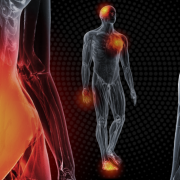
It is 7am on a Monday morning and “Breakfast is the most important meal of the day” rings through the family kitchen. Breakfast time is a great opportunity to offer up your body a healthy, nutritious start to the day. Yet according to the South African National Health and Examination Survey, one in five SA children skip breakfast. Breakfast skipping is also common in Australian teens, but completely opposite to the 9 in 10 Brazilian teens who do eat breakfast daily.
We also know that children who eat breakfast have a better nutritional status, eating more of the B-vitamins thiamine, riboflavin, and pyridoxine, more iron, and more whole foods like milk, wholegrains, and a wider range of more varied foods. Breakfast may also possibly play a protective role in preventing excess weight gain during childhood and teenage years, with regular breakfast-eating school children found to be more active and have healthier weights.
Your Best Breakfast Bet
Starting the day with a meal that is high in fibre from wholegrains and protein from eggs, dairy or legumes. Adding heart-healthy fats like avocado or nuts will help keep you fuller for even longer. Make breakfast one less thing on your to-do list and sign up for a recurring order at www.fitchef.co.za.
FitChef online is your new one stop shop for a range of healthy breakfast ideas:
-
In a large study of almost 400 000 participants, researchers showed fibre from cereal grains, on average, decreased the risk of death, death from heart disease and cancer by 20%. High in fibre, the Toasted Wheat Flakes serve up a hearty dose of fibre to start your morning. Top with milk or yoghurt, or use to make homemade bran muffins to serve with cheese.
-
Keep it quick and easy. Once defrosted, serve Luxury Rolled Oats with Cranberries, Cashew and Apple Cinnamon, adding a bit of hot water for your preferred smoothness.
-
Blend anti-oxidant rich frozen berries from the Fruit Aisle with yoghurt and/or milk and make an on-the-go smoothie. Add a sprinkle of FitChef nuts or trail mix for added crunch.
-
Eggs are a firm breakfast favourite. Make Shakshuka eggs with canned tomatoes from the FitChef Canned aisle, or add frozen stir-fry to an omelette or frittata.
-
Top a slice of sourdough toast with cheese or eggs, or if you’re going vegan add a spread of hummus or smashed avo.
References
-
Blondin, S.A., Anzman-Frasca, S., Diang, H.C and Economos, C.D. (2016) Breakfast consumption and adiposity among children and adolescents: an updated review of the literature. Pediatric Obesity. 11(5): pp. 333–34
-
Devlin, N.F., McNulty, B., Gibney, M., Thielecke, F., Smith, H, and Nugent, A. (2013) Whole grain intakes in the diets of Irish children and teenagers. BrJ Nutr, 110: pp. 354–62.
-
Hoosain, E., Dwane, N., Reddy, P., Jacobs, L., Shisana, O., Labadarios, D., et al. (2013) The South African National Health and Nutrition Examination Survey, 2012: SA-NHANES-1. Cape Town: HSRC Press. Available from: www.hsrc.ac.za/en/researchoutputs/view/6493.
-
Huang, C.J., Hu, T., Fan, Y.C., Liao, Y.M and Tsai, P.S. (2010) Associations of breakfast skipping with obesity and health-related quality of life: evidence from a national survey in Taiwan. International Journal of Obesity, 34: pp. 720–725.
-
Kosti, R.I., Panagiotakos, D, and Zampelas, A. (2010) Ready-to-eat cereals and the burden of obesity in the context of their nutritional contribution: are all ready-to eat cereals equally healthy? A systematic review. Nutr Res Rev, 23: pp. 314–22
-
Mann, K.D., Pearce, M.S., McKevith, B., Thielecke, F, and Seal C.J. (2015) Low whole grain intake in the UK: results from the National Diet and Nutrition Survey rolling programme 2008–2011. Brit J Nutr. doi:10.1017/S0007114515000525.
-
Monteagudo, C., Palacin-Arce, A., del Mar Bibiloni M., Pons, A., Tur J., Olea-Serrano, F, and Mariscal-Arcas, M. (2013) Proposal for a breakfast quality index (BQI) for children and adolescents. Public Health Nutr, 16: pp. 639–44.
-
Sandercock, G.R., Voss, C, and Dye, L. (2010) Associations between habitual school-day breakfast consumption, body mass index, physical activity and cardiorespiratory fitness in English schoolchildren. Eur J Clin Nutr, 64(10): pp. 1086-92.
-
Timlin, M.T, and Pereira, M.A. (2007) Breakfast frequency and quality in the etiology of adult obesity and chronic diseases. Nutr Rev, 65: pp. 268–81.
-
Williamson, C. (2010) Breakfast cereals—why all the bad press? Nutr Bull, 35: 30-3.

 No added or artificial sugars
No added or artificial sugars The cleanest ingredient labels
The cleanest ingredient labels






